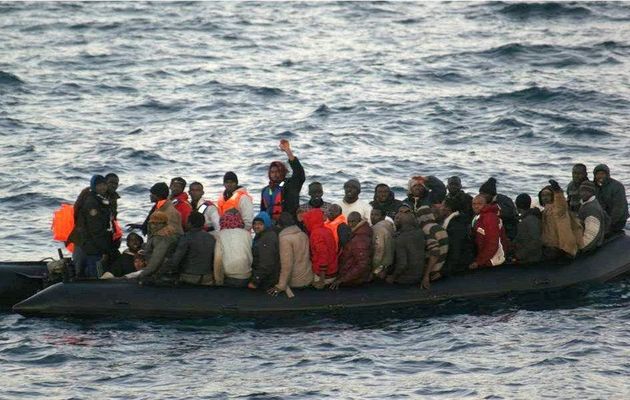APA – Dakar (Senegal) – Irregular emigration has intensified in recent weeks, with many African nationals arriving on European shores or in the United States after perilous journeys in Central American countries such as Nicaragua.
The African Development Bank (AfDB) and the International Organization for Migration (IOM) have produced a joint report examining the links between humanitarianism, peace, development and migration. Entitled “Diaspora engagement, climate-induced migration and skills mobility: a focus on Africa,” the report was discussed on Thursday, October 5, the final day of the fifth Africa Resilience Forum in Abidjan, the Ivorian capital, where the AfDB is also headquartered.
According to a press release copied to APA on Tuesday, the two institutions are “prioritizing ways to mitigate the negative impacts of migration while promoting resilience and economic development, and harnessing the potential of Africa’s human and economic capital.” Indeed, the report emphasizes the importance of partnerships that engage the diaspora, promote skills mobility, and strengthen climate resilience to further advance development on the continent.
According to the authors, the aim of the report is to strengthen technical cooperation between the pan-African bank and IOM, while the document, “which is currently being finalized and published shortly,” has also benefited from the involvement of the Multilateral Development Banks Platform on Economic Migration and Forced Displacement (EMFD).
The Africa Resilience Forum, held from October 3 to 5 under the theme “”Financing Security, Peace and Development for a Resilient Africa” and attended by development partners, regional institutions and African government representatives, was an opportunity to reflect on building partnerships to promote socio-economic development and integration in Africa through human mobility.
“The launch of the Protocol on the Free Movement of Persons alongside the African Continental Free Trade Area (AfCFTA) is an opportunity for resilience and sustainable development across our continent,” said Dr. Yero Baldeh, Director of the African Development Bank’s Coordination Office for States in Transition.
“It is important that we, as policymakers and practitioners, strike the right balance in our approach by maximizing the positive impact of migration on development, while building community resilience and working towards sustainable solutions for forcibly displaced people,” stressed Aissata Kane, IOM Special Regional Adviser for Africa, adding that this includes people affected by the impacts of climate change and environmental degradation.
ODL/te/lb/abj/APA


